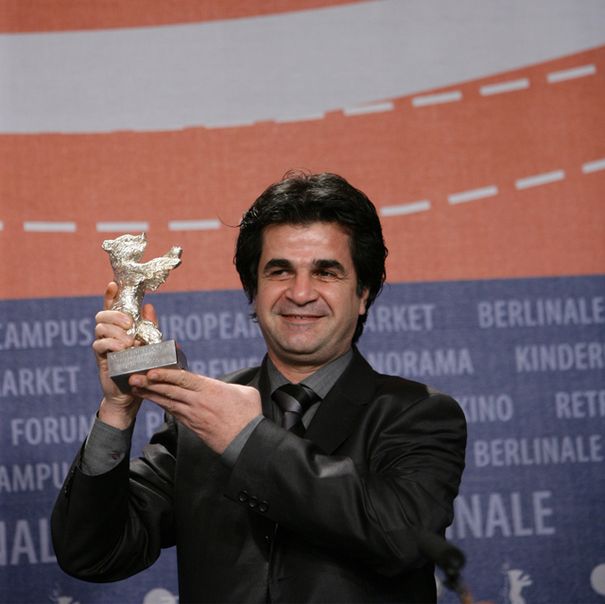Amputated Resistance
One of the best filmmakers in the world should have been in Berlin as part of the International Jury. Instead, he has been silenced and shackled in his own country. A profile of Jafar Panahi.

Director Jafar Panahi
Jafar Panahi began to draw global attention with his first feature film, THE WHITE BALLOON, a lovable movie that seemed to be part of an Iranian tendency – along with others by Abbas Kiarostami, Mohsen Makhmalbaf and Majid Majidi – to work within minimalistic contexts, with children as protagonists. Panahi had already demonstrated then that he knew how to trace funny and attractive characters, and he introduced a kind of character that he continued using throughout his career: a female with a strong objective. THE MIRROR is an amazing film that broke its own reality, with a surprising twist in the middle: what we thought was a lost and innocent little girl was really far from that stereotype. THE CIRCLE is one of the most daring films Panahi ever made, and like no other showed, via many oppressing, intersecting stories, the situation of women under the Iranian regime.
Panahi’s principal attribute is to know how to generate a realistic atmosphere, making you forget that you’re watching a fictional movie. He uses artifice to create the illusion that there’s no artifice at all. His style, direct and austere, suffuses life into his characters, makes them breathe. Lately, commercial and hegemonic cinema has shown only fundamentalist and armed Iranian men, embedded in a perpetual “jihad” against the West. Panahi knows how to build bridges between the audience and that other Iran in which people feel, dream, get upset, laugh and cry.
Perhaps CRIMSON GOLD is his slowest and most hermetic movie – surely, it’s his most ascetic – and it may even seem boring to some viewers. But it’s also a film that is difficult to forget, with a big and unique character, wandering on a strange and disturbing city walk.
Panahi is not only one of the best and more consistent critics of the tyrannical Islamic theocracy that prevails in Iran, but he is also one of the bravest filmmakers today. Unlike others, he never wanted to leave his country to shoot his films because, among other things, to leave Iran would mean leaving the place that inspires him most. To film OFFSIDE he managed to sneak with all his crew into a soccer stadium, and also to bring in six young actresses disguised as men. At that time in Iran it was forbidden for women to attend sporting events. But stylistically as well, the film is a breakthrough, displaying in stunning sequence shots and takes that capture some of the girls in the middle of a crowd. In other words, Panahi knew how to stick his finger to the regime where it annoyed the most.


301 Moved Permanently